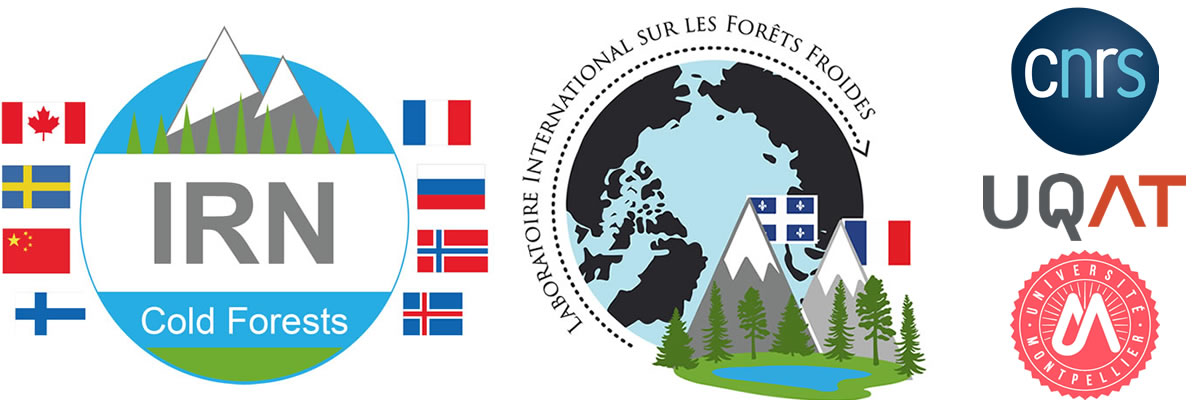Bio
Professional address:
Laboratory / Institution : Université du Québec en Abitibi-Témiscamingue
Address : 445 Bd de l’Université, Rouyn-Noranda, QC J9X 5E4, Canada
Mail : do*************@**at.ca
Academic background :
- Since 2021 : Post-doctorate on research activities in paleoecology and on the coordination of the French-Canadian research laboratory on cold forests
- 2017-2021: PhD Student in Environmental Sciences (Université du Québec en Abitibi-Témiscamingue et Université de Montpellier, France)
« Holocene, contemporary and future fire regimes in the Northwest Territories (Canada) » - 2015-2017: Master’s degree in Geography and Management – specialisation in Remote sensing (Université de Rennes II, France)
- 2009-2012: Bachelor’s degree in Geography and Management (Université de Nantes, France and third year realized as a part of a University exchange in Universidad Externado in Bogota, Colombia)
Professional experience :
- March to August 2016 – Research assistant in LETG Rennes COSTEL laboratory. Detection and characterization of hedgerow lines using SPOT 6 images (satellite image fusion, IGN database processing, GIS manipulation).
- March to September 2017 – research assistant in ISEM Montpellier laboratory and UMR TETIS. Detection and characterization of the spatial and temporal distribution of forest fires by remote sensing in the Eurasian boreal zone (spatial analysis under QGIS, python programming, SQL database, statistical analyses under R).
Area of expertise :
My PhD research aims to study the fire activity history in the boreal region of the Northwest Territories in Canada. I study the recent fire activity within the indigenous territory of the Tłı̨chǫ nation using remote sensing data. I also study past fire activity from sedimentary sequences sampled in lakes. I compare the historical fire activity reconstructions to the variation of climate and vegetation conditions in the long-term and the short-term past. The objective is to understand how fire regimes could be modified by future climate changes and which will be the implications for indigenous Tłı̨chǫ communities, particularly in terms of maintaining the ecosystem services provided by the forest.
Keywords : Boreal forest, Northwest Territories, Fire risk, Extreme fires, Tłı̨chǫ Nation
Website :
Affiliated institution : www.isem.univ-montp2.fr/fr/
ResearchGate : www.researchgate.net/profile/Dorian_Gaboriau3

